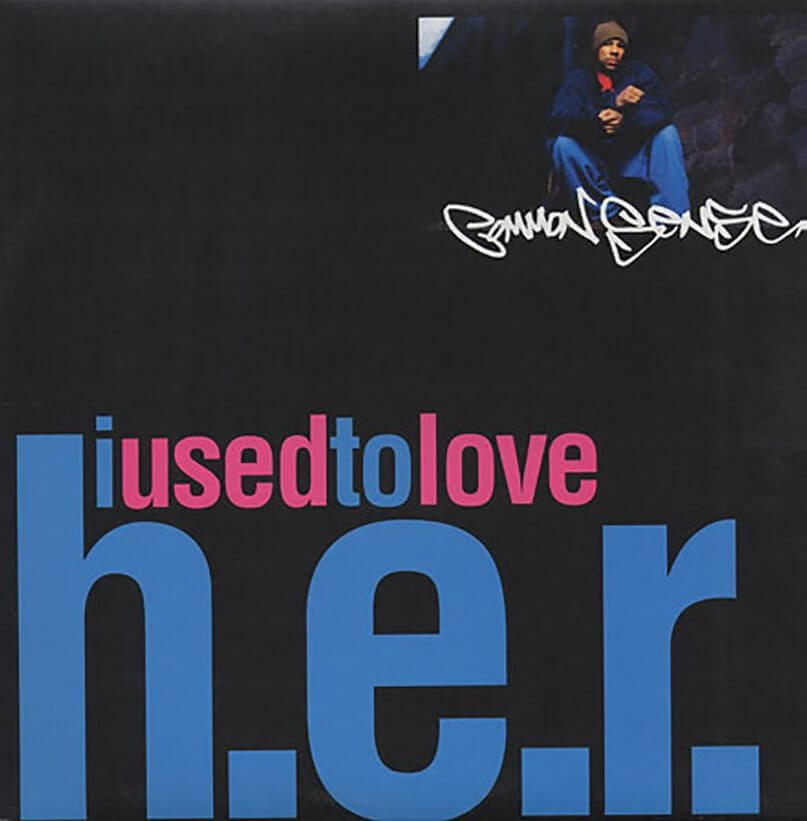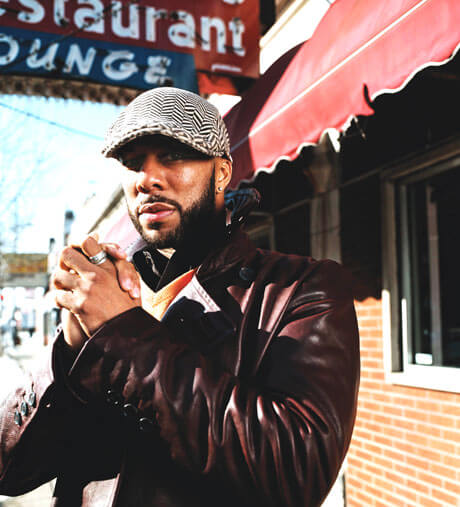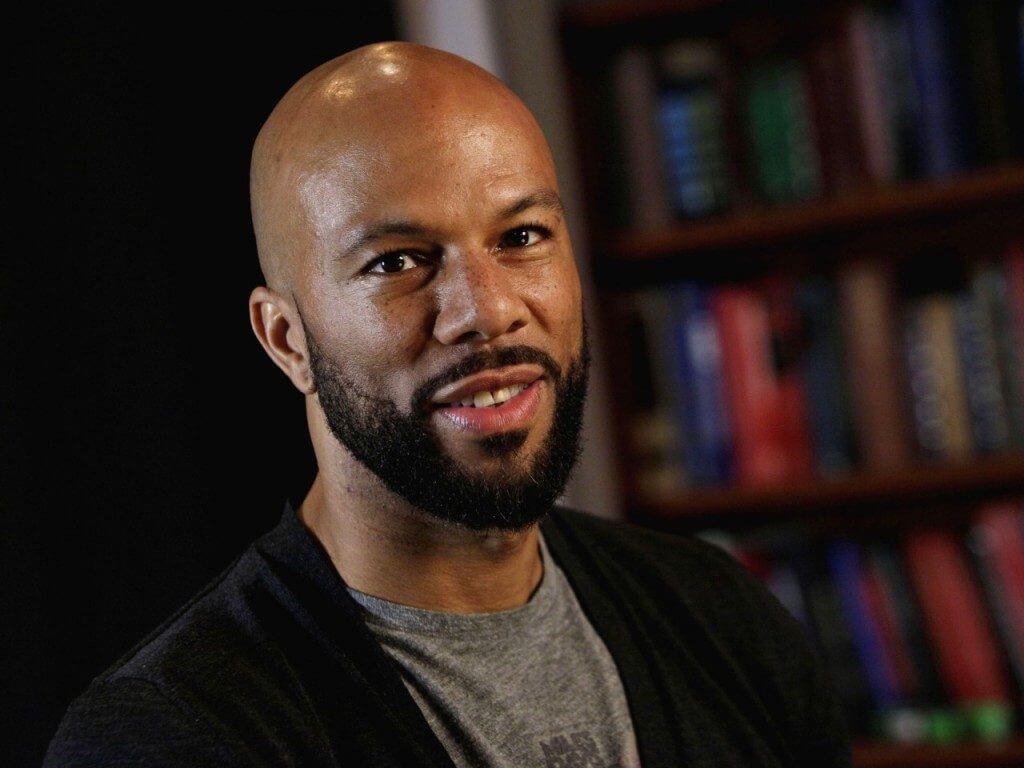When No I.D. sampled George Benson’s smooth melody from The Changing World to create a beat for Common, he had no idea that the resulting song would change the course of both their lives and careers. Common tells the story of his romance with Hip Hop through his own eyes by invoking an extended metaphor so vivid that all of the culture stopped and stared. I Used to Love H.E.R. has been ranked as the #1 Hip Hop song of all time by About.com, called a classic Hip Hop parable by Pitchfork Media, and has received acclaim from Source, XXL, VH1, and more.
Common as both storyteller and emcee has long been considered one of the best, especially in the subgenre of the so-called “conscious rap.” In I Used to Love H.E.R., Common tells his story with Hip Hop as though the genre was a girl that he grew up with and loved. Falling in love at a young age but over time becoming less attracted as she went through changes, symbolizing the ups and downs in the quality of the music produced by other rappers as time went on. According to Common, the acronym H.E.R. means “Hip Hop in its Essence is Real,” simultaneously stressing what the authenticity in Hip Hop means to him while also taking a jab at the phoniness Common perceived in the art form as it became more and more commercialized.
I met this girl when I was 10 years old
And what I loved most she had so much soul
She was old school when I was just a shorty
Never knew throughout my life she would be there for me
On the regular, not a church girl, she was secular
Not about the money, those studs was mic-checkin’ her
But I respected her, she hit me in the heart
A few New York n***** had did her in the park
But she was there for me, and I was there for her
Pull out a chair for her, turn on the air for her
And just cool out, cool out, and listen to her
Sittin’ on a bone, wishin’ that I could do her
Eventually if it was meant to be, then it would be
‘Cause we related, physically and mentally
And she was fun then, I’d be geeked when she’d come around
Slim was fresh, yo, when she was underground
Original, pure, untampered, a down sister
Boy, I tell you, I miss her
In verse 1, Common makes a point off the bat that he discovered Hip Hop at a relatively young age. Common was born Lonnie Rashad Lynn Jr. in 1972, meaning that, according to his lyrics, he discovered Hip Hop in 1982. That was relatively early in the genre’s history, and two hugely pivotal tracks dropped that year; Planet Rock by Afrika Bambaataa and The Message by Grandmaster Flash and the Furious Five. In R&B, Michael Jackson’s Billie Jean and Marvin Gaye’s Sexual Healing were also hitting the airwaves and keeping African American art at the forefront of pop culture. Despite many other emcees experimenting with Hip Hop around the same time, Common truly treated the genre how he thought it deserved. His metaphorical relationship transitions into the literal as he describes sitting in a chair and relaxing while absorbing the music, alluding to chivalrously pulling out a chair for a woman. Common also uses sex as a metaphor for the practice of emceeing, “doing Hip Hop,” to describe his yearning to be part of the culture and become an emcee in his own right. At the end of the verse, the tone becomes more nostalgic as Common reflects on missing how she once was, meaning that somewhere down the line Hip Hop changed in Common’s eyes.
Now periodically I would see
Ol’ girl at the clubs, and at the house parties
She didn’t have a body, but she started gettin’ thick quick
Did a couple of videos and became Afrocentric
Out goes the weave, in goes the braids, beads, medallions
She was on that tip about stoppin’ the violence
About my people she was teachin’ me
By not preaching to me but speaking to me
In a method that was leisurely, so easily I approach
She dug my rap, that’s how we got close
But then she broke to the West Coast, and that was cool
‘Cause around the same time, I went away to school
And I’m a man of expanding
So why should I stand in her way?
She probably get her money in L.A
And she did stud, she got big pub, but what was foul
She said that the pro-black was going out of style
She said, Afrocentricity was of the past
So she got into R&B, hip-house, bass, and jazz
Now, black music is black music and it’s all good
I wasn’t salty, she was with the boys in the hood
‘Cause that was good for her
She was becoming well-rounded
I thought it was dope how she was on that freestyle s***
Just having fun, not worried about anyone
And you could tell by how her titties hung
At this point, Common recognizes that Hip Hop is starting to become more popular, getting played in clubs and at parties more often. He describes her as growing up, going through puberty and now having a woman’s body. This thick body refers to the fan base growing, and the maturity relates to the themes in Hip Hop becoming more about black pride, anti-violence, and African heritage. The music wasn’t preachy or forceful, and as a result, Common felt the music had an organic approach to teaching him these lessons. The ease of Hip Hop’s manifestation in Common, as written for the song, is also meant to be an allusion to Common’s first single Take it EZ as well as a line from Eazy E’s Still Talkin’ according to Genius.
Common proceeds to give his opinions on the west coast Hip Hop perspective during the rise of Gangsta Rap from artists like NWA and Snoop Dogg. In his eyes Hip Hop started to sell out, becoming more about image and money than substance and awareness. However, Common acknowledges that everyone can’t be the same and that expanding one’s horizons and becoming well rounded is part of growth and Hip Hop was no different. Renowned west coast emcee, Ice Cube took this as an insult and sparked one of the most lyrical and historical rap beefs in history. Even though Common hailed from Chicago, many refer to I Used to Love H.E.R. as one of the first shots fired in the infamous east coast v. west coast beef that gained notoriety in the 1990’s. The fact remained that Common actively defended the east coast’s style and expressed dissatisfaction in the west coasts more volatile and commercially-driven music. It is easy to see why Ice Cube would take offense, but at the same time, Common did also explain the benefits of Hip Hop becoming well rounded as it spread to new perspectives. Both artists traded shots back and forth on songs like Westside Slaughterhouse and The B**** in Yoo.
Eventually, after the deaths of 2pac and Notorious B.I.G., it became apparent that something needed to change. Minister Louis Farrakhan of the Nation of Islam hosted a peace summit in 1997 to quell the violence and animosity between east and west. Farrakhan succeeded, and much of the negative tension began to dissipate; Common and Ice Cube squashed their beef with a hug as a genuinely moving resolution for all involved. Today Common and Ice Cube respect each other as friends and have even co-starred together in the latest Barbershop movie.
This tale of Common’s personal history and ponderings on the development of Hip Hop is esteemed by many as an all-time great and continues to receive well-deserved recognition. 10-year-old Common got his wish, contributing one of Hip Hop’s greatest works as well as both igniting and resolving one of the most historic events in the culture.


